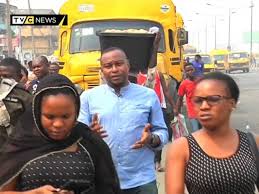Since the announcement of the removal of the fuel subsidy on May 29, 2023, petrol prices have continued to climb, heavily impacting inflation and transportation costs for both people and goods.
The continuous rise in petrol prices has pushed many Nigerians, already struggling with the high cost of living, into an even more difficult situation, especially with the increased cost of transportation.
Just last week, the Nigerian National Petroleum Corporation (NNPC) Limited announced new petrol prices at its filling stations, raising prices from around N850 to N998 in Lagos and N1,030 in Abuja.
This unprecedented hike has hit many Nigerians hard, particularly in the transportation sector. In Lagos, public transportation fares for buses, motorcycles (okada), and tricycles have quadrupled due to the increased fuel costs.
Daily Struggles of Commuters in Lagos
Commuters who rely on public transport to get to work are finding themselves unable to afford these services.
“Imagine spending N4,000 daily on transport while earning less than N150,000 monthly,” said Isaac Adeolu, a regular commuter traveling from Abule Egba to Victoria Island, in an interview with Nairametrics.
Adeolu, who works six days a week, stated that the rising cost of petrol has made his daily commute unsustainable.
The situation is even grimmer for Lagos residents living in shanties and uncompleted buildings in Obalende on Lagos Island. Many earn their living through roadside trading or domestic work in more affluent areas like Ikoyi, Lekki, and Falomo.
Credit to Nairametric.


